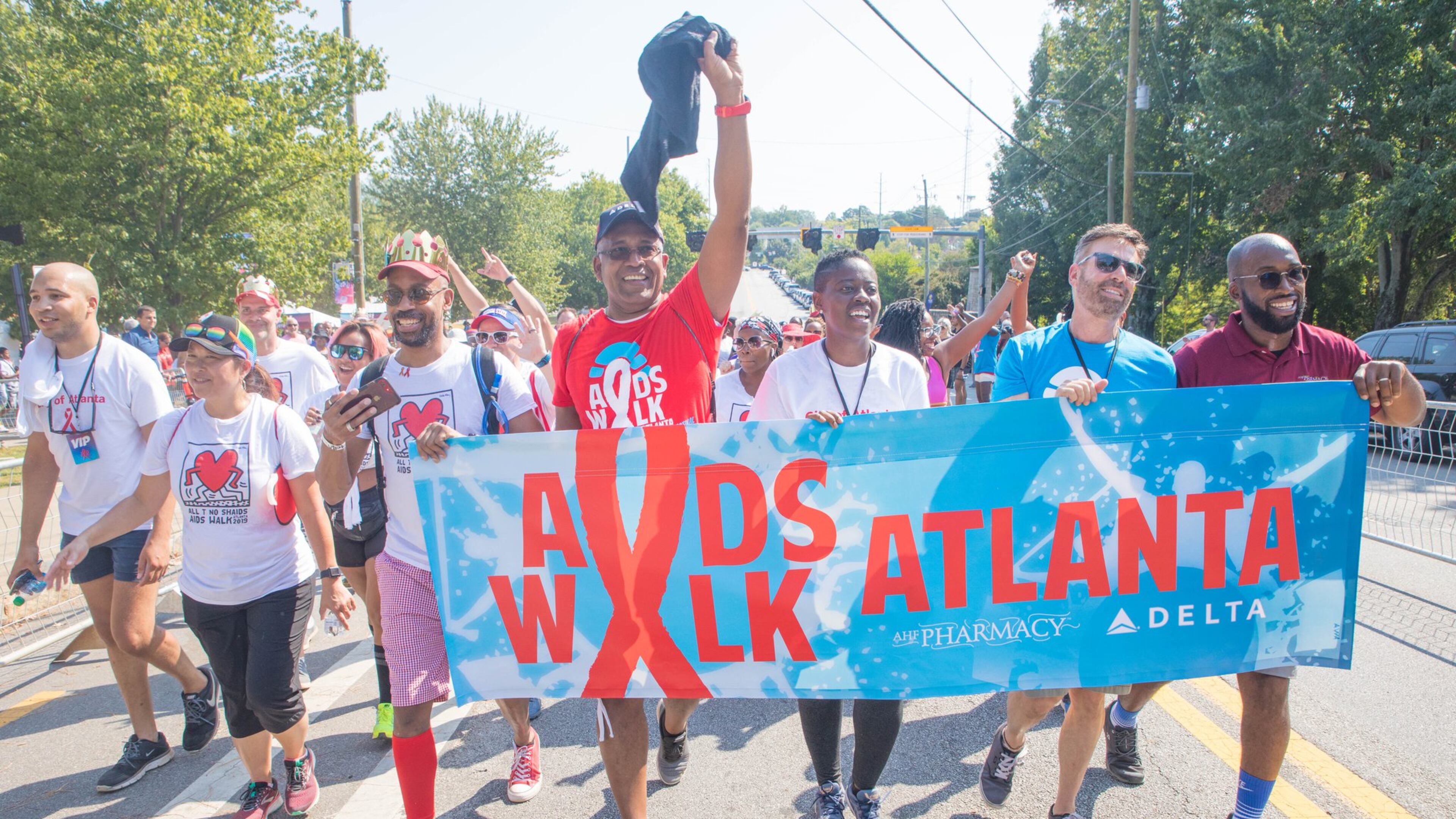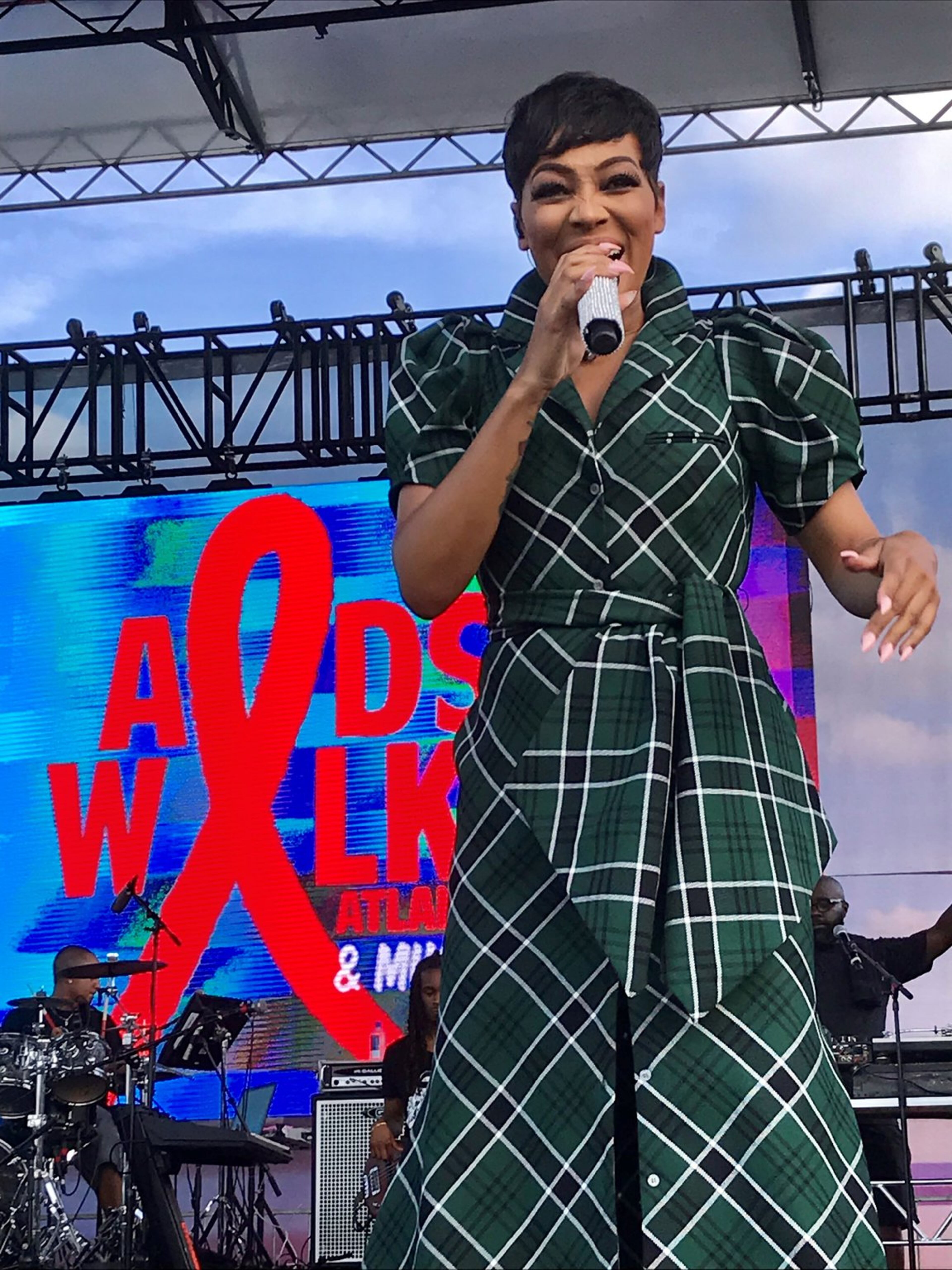In long walk to raise awareness about AIDS, why things had to change

After my more than 40 years of reporting and writing for daily newspapers, few things shock me. This little nugget did: 21% of all new HIV diagnoses in 2017 were among young people aged 13-24, according to the Centers for Disease Control and Prevention.
While I say little, if you’re a parent or just care about kids, that’s got to be extremely disturbing, but it gets even worse. That same year, 73 children under the age of 13 received a diagnosis of perinatally acquired HIV in this country; among the more than 38,700 new HIV diagnoses, 8,164 were in the 13-to-24 age group.
If you were puzzled by the new party atmosphere Sunday at the annual AIDS 5K run and walk at Piedmont Park, this ought to explain it. The need to reach this population is critical.

“2020 will mark 30 years for the Atlanta AIDS Walk,” said W. Imara Canady, spokesman for the nonprofit AIDS Healthcare Foundation. “The unfortunate thing is there continues to be a need but the target community has shifted from gay white men to people of color and those who are 13 to 24 years old.”
After years of focusing solely on fundraising, Canady said it’s become increasingly clear more has to be done to raise awareness among youths about HIV, the virus that causes AIDS.
Unlike older populations who can remember a time when their friends, colleagues and family members were dying from complications of AIDS, younger generations have no such recollections. They live in a time when HIV is considered a critical illness, not a death sentence.
>> RELATED | How improved medicines helped fuel the HIV epidemic
“By incorporating entertainment, we hope to connect them to a cause and a message that will resonate with them,” Canady said.
By doing so, the foundation is taking a page from its Florida event, which successfully combined fundraising and awareness years ago. But it’s also building on Atlanta’s healthy living craze.
“Atlanta city is known for having great festival events and having that bring a cross section of our community together,” Canady said. “What we’ve done is put together a diverse list of artists who not only have a strong following, but who have been connected to the work of HIV awareness.”

Hence, the name change — AIDS Walk & Music Festival — and a musical lineup that included R&B sensation Eric Bellinger, three-time Grammy nominee Raheem DeVaughn and Atlanta’s own Grammy Award-winning multiplatinum artist Monica.
Canady calls it a party with a purpose. In addition to food and fun, there was plenty of HIV/AIDS education and rapid, free, confidential HIV testing. Several hundred panels of the AIDS Memorial Quilt, the world’s largest folk arts exhibition, were displayed to honor those who have died from AIDS and to serve as a reminder that more research, education and awareness are still needed to address the growing HIV/AIDS epidemic.
It’s an epidemic that plagues metro Atlanta more than people may realize. San Francisco has about the same number of people living with HIV as Fulton County alone, yet in five years its new HIV diagnoses have decreased by more than half to 221 while Fulton County had nearly 700, essentially unchanged over five years. New York’s cases have decreased 36% over five years.
Both Monica and Raheem DeVaughn have spent years working with the AIDS Healthcare Foundation —DeVaughn through his Love Life Foundation and Monica through her recently launched Be Human Foundation.
>> RELATED | Why Fulton County is key to ending HIV in the country
Addressing HIV in youths requires that young people have access to the information and tools they need to reduce their risk, make healthy decisions, and get treatment and care if they have HIV.
Indications are that information isn’t reaching those who need it the most.
Why?
Mainly because sex education is virtually nonexistent in our schools, safe sex is not being talked about at home and most houses of worship aren’t considered safe places to talk about sex, Canady said.
“At the same time, they have access to more information than at any other time in our society,” he said. “Add to that the fact that there is more sexual exploration earlier and a very different definition around what is considered a sexual act. Match that with the fact that we have a generation that has grown up with HIV. If I catch it, I’ll just get on the pill. However, this is not something that goes away.”
According to a School Health Policies and Practices Study, the percentage of U.S. schools in which students are required to receive instruction on HIV prevention decreased from 64% in 2000 to 41% in 2014.
>> RELATED | ‘Heartbeat’ law fight also points to sex ed, birth control issues
Here are a few more disturbing findings from the Youth Risk Behavior Surveillance System, which monitors health behaviors that contribute to the leading causes of death and disability among youths:
• Only 9% of high school students have been tested for HIV. Among male students who had sexual contact with other males, only 15% have ever been tested for HIV.
• Nationwide, 19% of all students who had sexual intercourse during the previous three months and 20% of male students who had sexual contact with other males drank alcohol or used drugs before their most recent sexual intercourse.
• Nationwide, 46% of all sexually active high school students and 48% of male students who had sexual contact with other males did not use a condom the last time they had sexual intercourse.
• Nearly 25% of male students who had sexual contact with other males reported sexual intercourse with four or more persons during their life, compared to 10% of all students.

In addition to enjoying Sunday’s event, that’s the kind of information Canady hopes participants left with and will take steps to avoid.
And if the foundation is lucky, it will have met its goal to raise $750,000, all of which will benefit Atlanta-area AIDS service organizations like AID Atlanta, Jerusalem House, and Positive Impact Health Centers.
“It’s good to talk about education and prevention, but without the dollars, it’s just conversation,” Canady said.
For every dollar those organization raise, the foundation will donate matching dollars. The good news is those dollars will stay in the community.
Find Gracie on Facebook (www.facebook.com/graciestaplesajc/) and Twitter (@GStaples_AJC) or email her at gstaples@ajc.com.


